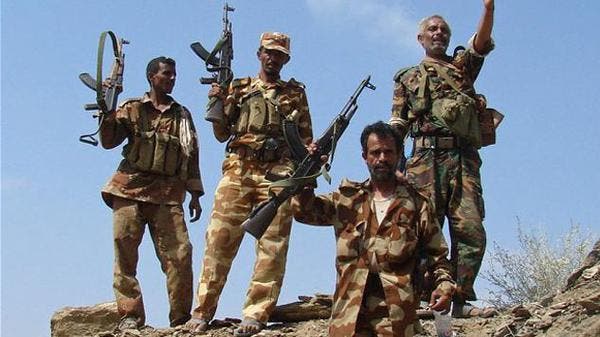Last Update: Friday, 20 September 2013 KSA 12:02 - GMT 09:02
Qaeda attacks on military base kill at least 50 in southern Yemen
Al Arabiya
Fresh attacks attributed to al-Qaeda militants in Yemen killed at least 50 policemen and soldiers early Friday, Al Arabiya’s correspondent reported.
Car bombs targeted two military sites at Yemen’s southern governorate of Shabwa. Around 20 died when two car bombs exploded at a military camp in al-Nashama and about 10 were killed by gunmen in the town of Mayfaa.
Officials believe the attacks were carried by suspected members of al-Qaeda in the Arabian Peninsula (AQAP), a local source told Reuters.
A concealed bomb in one car exploded among a group of soldiers at the gate of the al-Nashama camp as the driver sought to enter. The other was already inside the camp when it exploded, one of the security sources said.
In Mayfaa, gunmen opened fire on a military headquarters, killing around 10 people, before escaping in stolen army vehicles, local residents told Reuters.
AQAP is seen by Western countries as one of the most dangerous branches of al Qaeda because it has attempted to carry out bombings on international airlines.
The Shabwa Province is a lawless, rugged area that has been the scene of much fighting in recent years between Islamist militants and the security forces.
20 September 2013 Last updated at 08:42 ET
Yemen violence: Twin attacks on army 'kill 40'
The government is battling al-Qaeda in the Arabian Peninsula (AQAP) militants who often target the military
At least 40 people were killed when suspected al-Qaeda militants launched simultaneous attacks on army targets in southern Yemen, officials say.
Two car bombs reportedly exploded at a camp in Shabwa province, killing about 30 soldiers and wounding many others.
In a second assault in the area, gunmen shot dead another 10 soldiers in the town of Maifaa.
The government is battling al-Qaeda in the Arabian Peninsula (AQAP), which frequently targets the military.
In the past year, a major army offensive backed by US drone strikes has forced AQAP and affiliated militant groups out of towns in the south that they seized during the political chaos triggered by the Arab Spring.
BBC Arab affairs analyst Sebastian Usher says the Shabwa attacks, if they were carried out by AQAP, show what they are still capable of, despite having lost a number of their key members to drone strikes.
Security failures
The attacks appeared to have been well-organised and co-ordinated. Officials said they took place on Friday at dawn under the cover of heavy fog.
A concealed bomb in one car exploded among a group of soldiers as the driver sought to enter the camp, the Reuters news agency reports.
The other explosives-filled vehicle was believed to have been blown up inside the camp.
In Maifaa, the attackers opened fire on a group of soldiers on patrol before escaping in stolen army vehicles, witnesses said.
Our correspondent says the government will face tough questioning about the security failures that allowed these attacks to happen in what are meant to be well-guarded bases.
President Abdrabbuh Mansour Hadi has made restructuring the army as well as trying to restore security one his most urgent priorities.
Aside from AQAP, Yemen's stability continues to be shaken by separatists in the south and a rebellious Shia movement in the north, as well as a poorly performing economy.
AQAP, which is based in Yemen, has been described by the US as one of the world's most dangerous branches of al-Qaeda.
Led by a former aide to Osama Bin Laden, it has promised to attack oil facilities, foreigners and security forces as it seeks to topple the Saudi monarchy and Yemeni government, and establish an Islamic caliphate.
Last month, the US and several other Western countries temporarily shut their embassies in Sanaa citing continuing security concerns, amid warnings that AQAP was in the final stages of planning a major attack.



No comments:
Post a Comment